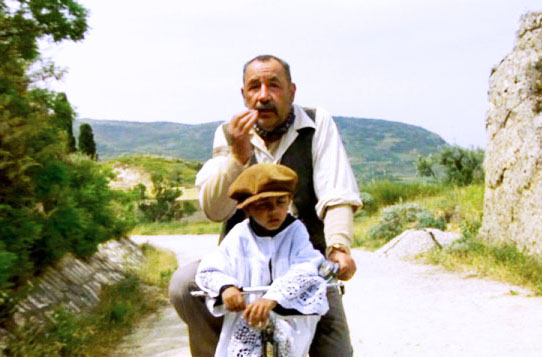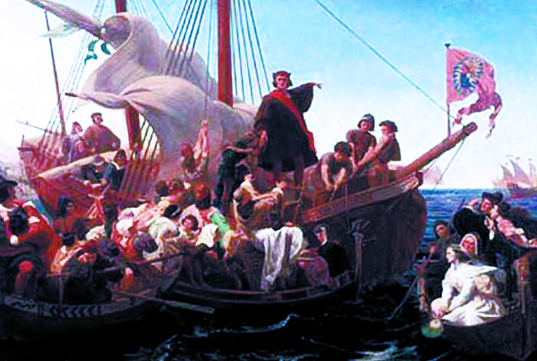Part 12 – Cinema Paradiso
Our Italian Classic Cinema pick for this week is Cinema Paradiso. While there is no doubt that classic Italian cinema of the mid-20th century marked the golden age of the filmmaker’s art in Italy, many films that were released in the latter half of the century echo the brilliance of their forebears. Some successful and heralded directors of the ‘60s and ‘70s made their last films during the past 30 years and the world of Italian cinema is all the more exceptional for counting these among its crown jewels.
Cinema Paradiso, a 1988 film by Giuseppe Tornatore, is both a tribute to the art of filmmaking and a coming-of-age film. The film stars Philippe Noiret, Salvatore Cascio and Leo Gullotta. It is the story of a village cinema that in the 1940s and 1950s, was the favorite meeting place of a whole community. The film travels through the memories of a successful director, an alumnus of the projectionist, who recalls his youth at the cinema.
The film opens with Salvatore (Jacque Perrin), a famous director who has just found out that his mentor Alfredo has died. As Salvatore prepares to return to his home village, he reminisces about his childhood in Giancaldo, Italy. The film then proceeds with a series of flashbacks in which the child Salvatore (Salvatore Cascio) loved movies and would go to the Cinema Paradiso every day to watch the matinee.
It was here that Salvatore developed a relationship with Alfredo, the projectionist, who taught him about life, romance and films. Salvatore works at the Cinema Paradiso with Alfredo until it burns down and when a new theatre is built, adolescent Salvatore (Marco Leonardi) becomes the projectionist, with Alfredo as his confidant.
This first half of the film allows the audience to develop an appreciation for the art of film through young Salvatore’s eyes. As the film shifts to a coming-of-age story, Salvatore falls for Elena (Agnese Nano), but the amorous feelings are not mutual. Eventually, Elena falls for Salvatore, but joy becomes sadness when Elena vanishes.
The beauty of the film is captured in the final scene, the now famous kissing montage. Salvatore inherits a film reel from Alfredo that features kisses from every film that were removed because of the local priest’s censorship capabilities.
In this montage, Salvatore is reminded of the beauty of filmmaking, but also of the absent passion from his life since the disappearance of Elena. There is also be a hidden message to the audience in this montage to “remember the kisses,” or the good times that people share with each other.
Cinema Paradiso is a true work of art that every movie enthusiast must see to be reminded of why the world has an unending love of film. The film features the music of Academy Award winning Italian composer and conductor Ennio Morricone, who composed one of his finest scores for the film, which is another way of saying that it is among the best scores ever produced for the cinema. The music of Cinema Paradiso is in a class of its own and alone is reason enough to see the film.
Cinema Paradiso not only impacted filmmaking, but it also renewed Sicily as a hot spot for movie shoots. The village of Giancaldo, invented by filmmaker Tornatore, took on the likeness of Palazzo Adriano, in the heart of Palermo. Many scenes were shot at the beautiful Piazza Umberto I, which is renowned for the picturesque 17th century fountain at its center. In this small town of 15th century foundation, two beautiful churches stand in the piazza; Madonna Assunta and Madonna del Lume.
The film uses views of Castelbuono, an important place in the Madonie, to represent a medieval castle. Also featured is an old parish church, built during the 14th and 15th centuries, which still stands in Palazzo Adriano. Shots of the Mina Palumbo Natural History Museum, which is the former Santa Venera Convent, can be seen throughout the film. Tornatore filmed a large part of the movie in the small harbor of Cefalu Tornatore, which set the projections at the open-air summer cinema. Cinema Paradiso is not only a journey through a young man’s past, but also a journey through the beautiful sights of Palermo.





